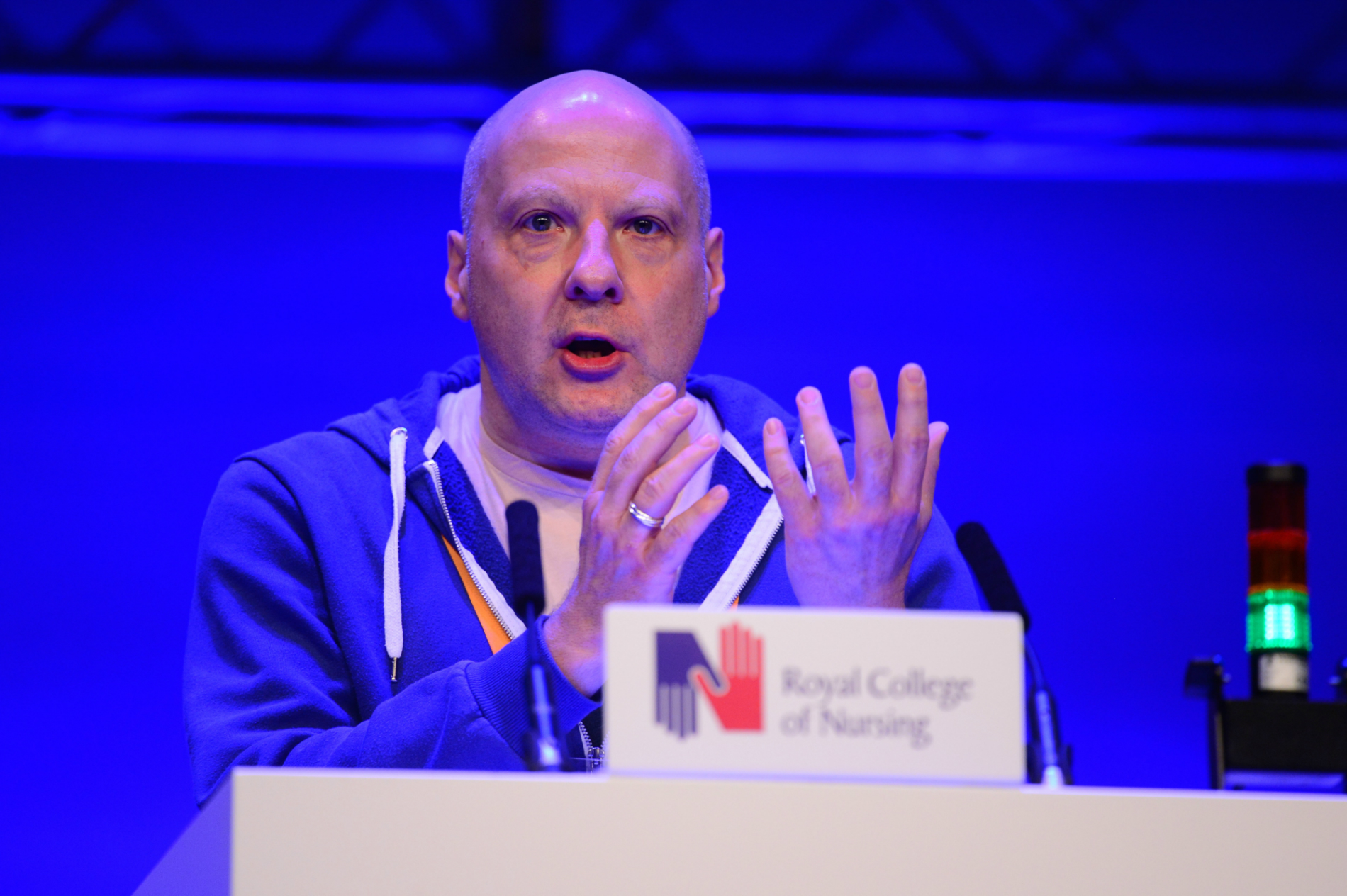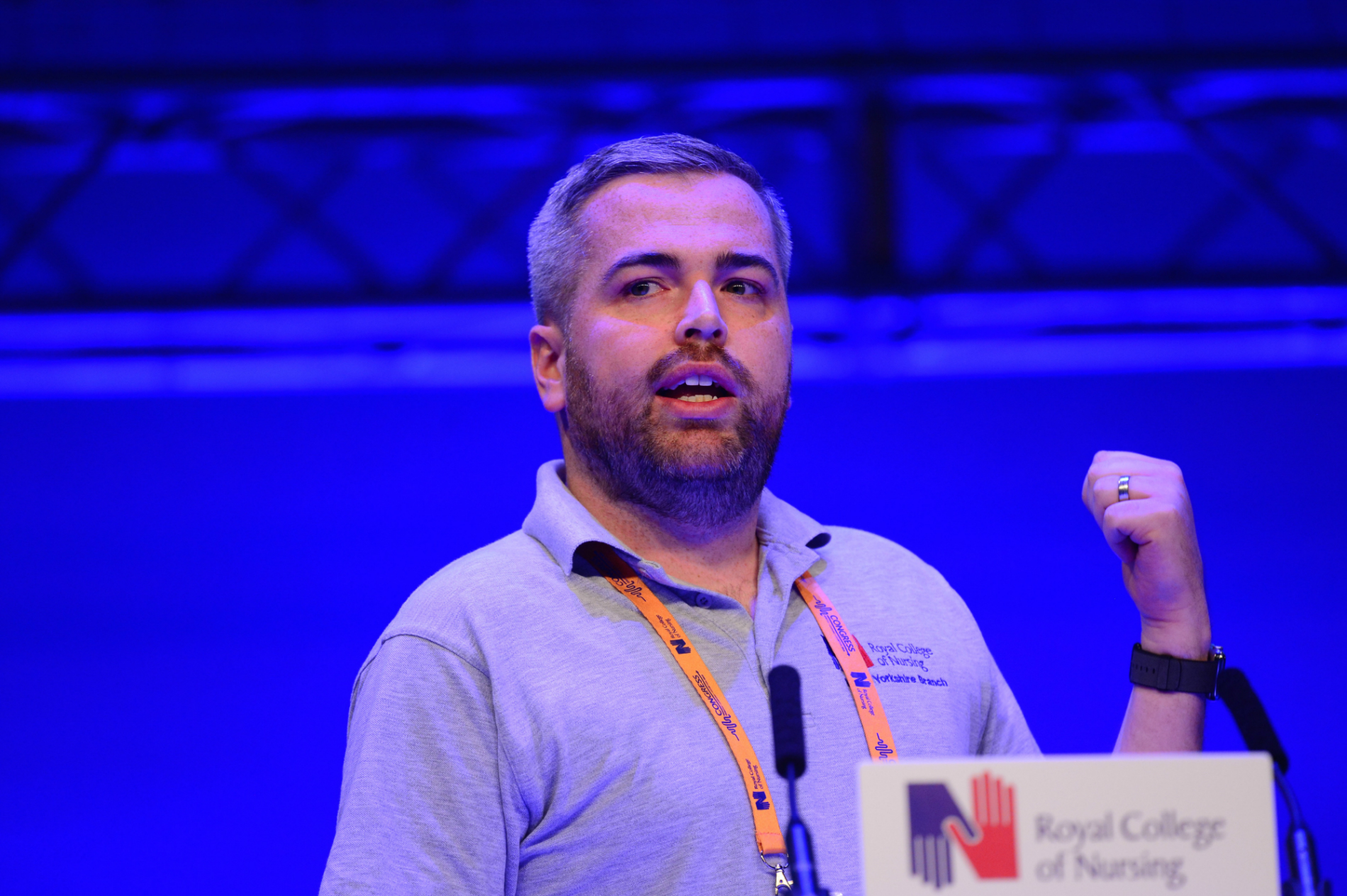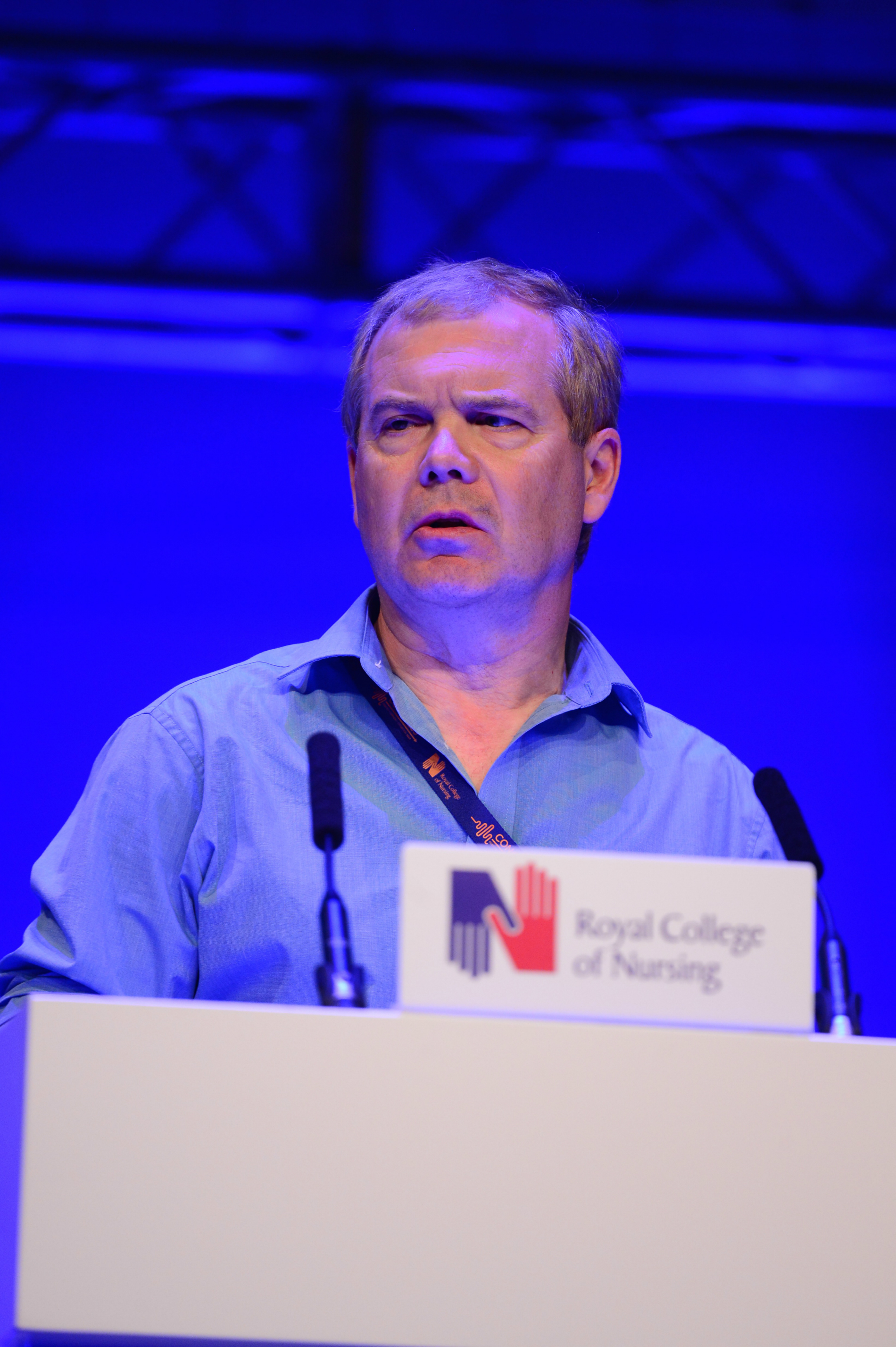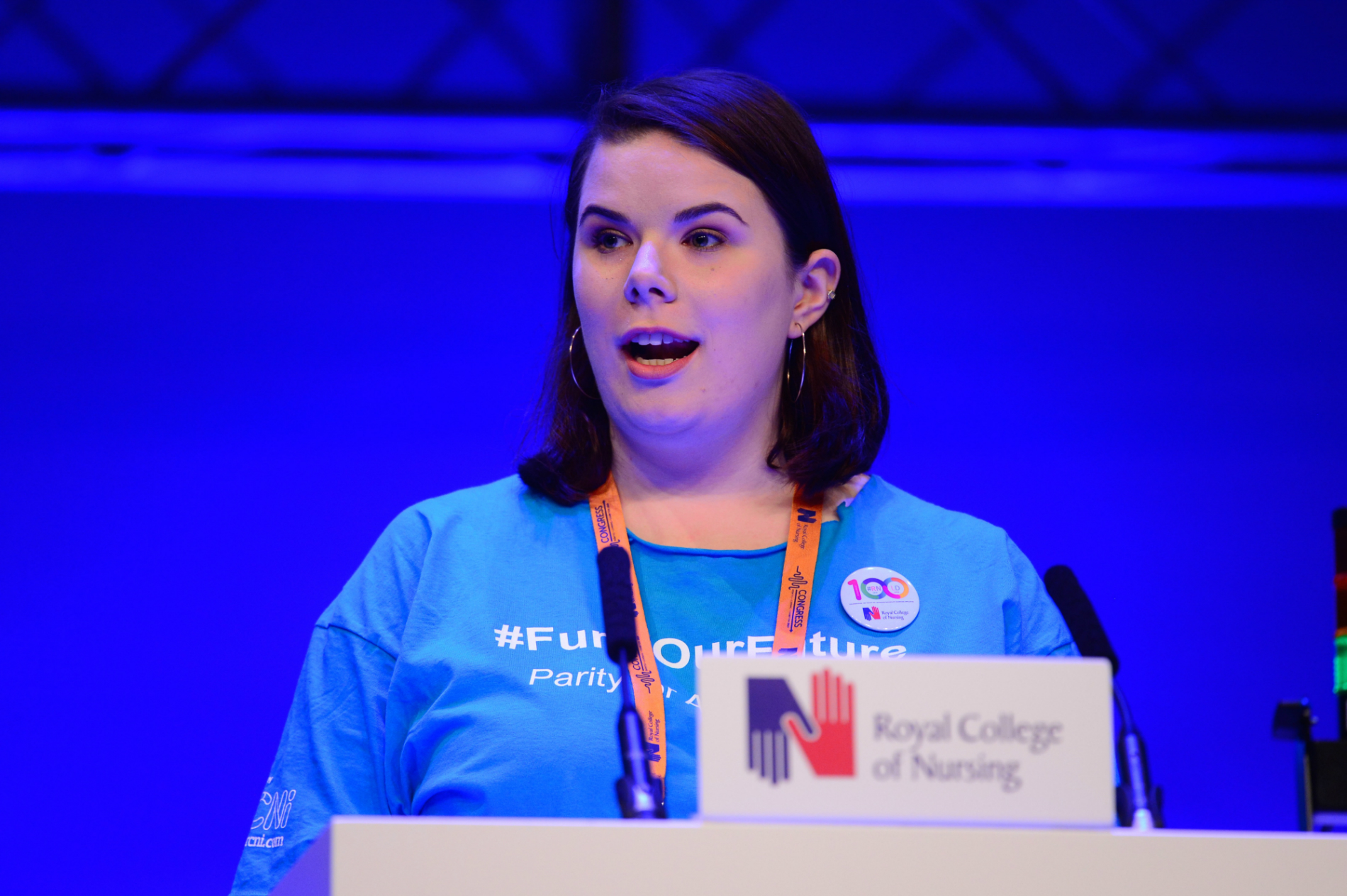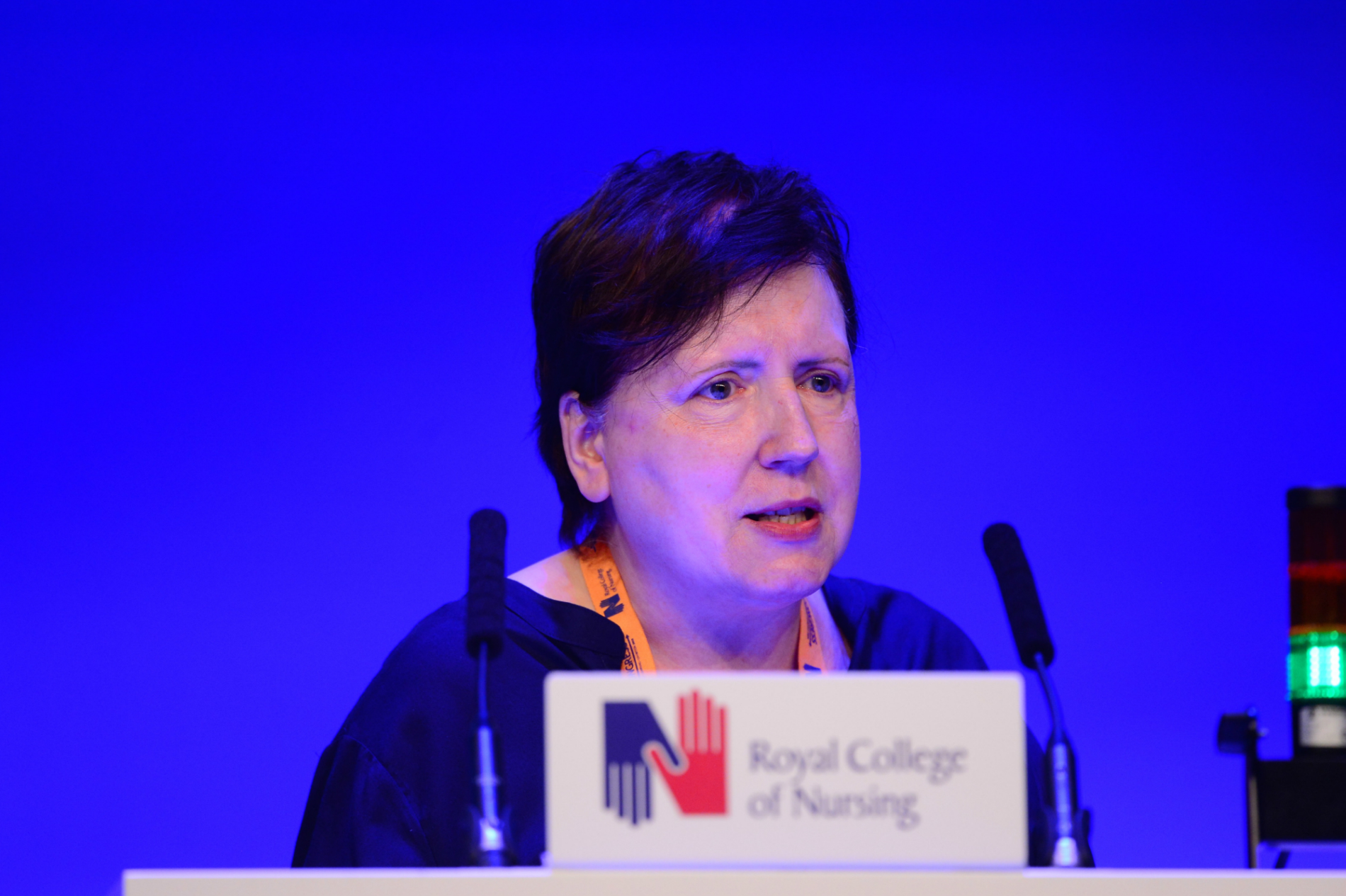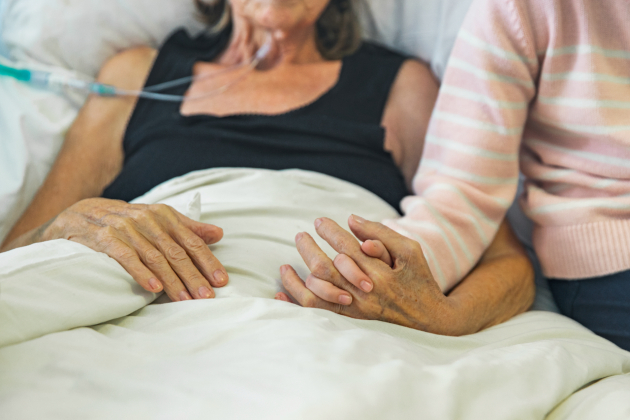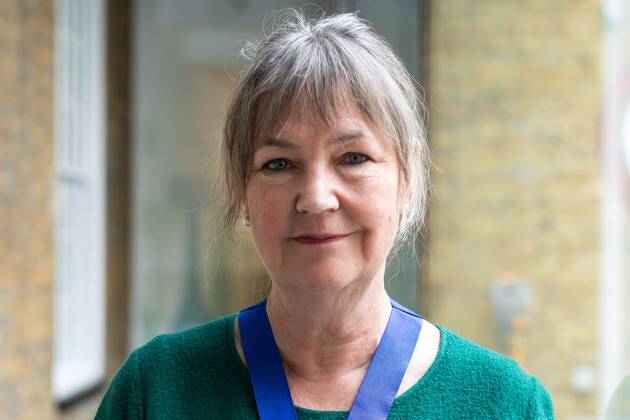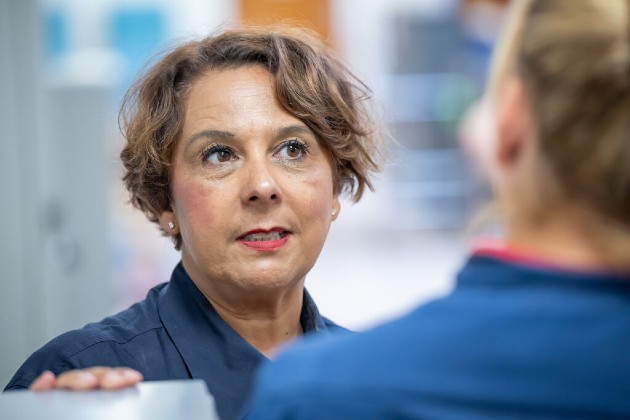“I’ve had members of the public come to see me in a panic because they’ve slept with a sex worker. They’re frantic with worry that they’ll pass on an infection to their partner as a result,” says Kate Nulty, a nurse practitioner working in a sexual health clinic.
“But the reality is they’re probably more at risk of getting an infection by sleeping with someone they’ve met in a bar. The sex workers I care for know how to protect themselves.”
Kate believes decriminalising prostitution will help keep people safe. Not just the sex workers she sees in her weekly specialist clinic, but everyone. She says that nursing staff are right to debate the controversial issue at this year’s RCN Congress.
“When we look after sex workers, we’re looking after their clients too. They need empathic nursing care because otherwise they might not feel confident enough to disclose the information we need, meaning they won’t get the services they require. They need to know that as nursing staff, we’re there to look after them and not to judge,” she says.
Kate also works in a number of public facing services and has more than 20 years’ nursing experience. In a former role based in Tottenham in London, she worked with young and vulnerable women, who were sex workers.
When we look after sex workers, we’re looking after their clients too
“I would go out and meet these women on the streets. I’d give them essential advice on contraception, drug and alcohol use as well as safety and health issues. By seeing them where they worked, I could see first-hand if they were safe or frightened. They learned to trust me,” she says.
This was before the 2012 London Olympics. Back then Kate knew where to visit in London. While prostitution was still a criminal offence, it was an area where brothels were tolerated by the police.
All that changed as the Olympics drew closer. The benefits of the hugely successful sporting event were not extended to these most vulnerable of women. The brothels were closed and most sex workers moved onto other areas of the city.
“It was much safer for them to be in these tolerated areas,” Kate says. “When they were moved we didn’t know where they went and neither did the police.”
New environment, same advice
Now Kate works in another area of London but once a week continues to run a popular clinic for sex workers. The help and advice she gives hasn’t really changed but the environment she works in and the clients she works with have.
“I tend to see more male and trans sex workers now, and they come to us,” she says.
The clinic is advertised openly, so to protect their confidentiality sex workers are given a flyer to hand to the receptionist so no one else knows why they’re there. Or they can ask for their clinician by first name.
“I’ve known many of my clients for years now. They remember the feeling of being looked after when they were at their most vulnerable. They remember being safe and not being judged. Being able to tell us anything is really valuable for them.”
Kate feels strongly that keeping sex workers safe is an important way to keep everyone healthy.
We need to challenge misconceptions that all sex workers are drug users with a terrible life
“We really need to challenge misconceptions that all sex workers are drug users with a terrible life or that they’re dirty. Many people are still too quick to judge but these people are honest and hard-working individuals. Often they’re just looking for a way to support their families, even if this means putting themselves at risk.
“Their care should be the concern of all nursing staff and prostitution should be decriminalised for the safety of all.”
Debating the issue
Kate's view was shared by many members who debated the issue at RCN Congress in Liverpool.
Louise Cahill, a clinical nurse specialist in sexual health, who proposed the debate, says she did so because she wanted the RCN to get behind the cause.
She asked delegates to vote in favour of calling upon RCN Council to lobby governments to decriminalise both the sellers and buyers of sex.

By bringing the debate to the RCN’s flagship conference, she hoped to raise awareness among the nursing profession about how sex workers have been dehumanised and deliberately shut out of discussions around their own lives.
Her proposal was different to what’s often referred to as the Nordic model, which criminalises just the buyers of sex. Supporters argue this will end demand and close the sex work industry but Louise pointed to evidence that this model increases violence against sex workers.
“The reality is that this model pushes sex workers underground and studies in Sweden have found that there was no evidence that it resulted in a decline in sex work,” she said.
Louise also argued that this approach fails to acknowledge that sex workers will continue to sell sex despite the increased dangers forced upon them.
“If sex workers feel disempowered, they’re less likely to be able to negotiate condom use, leading to increases in HIV rates along with other STIs,” she added.
Broad support for the motion
Louise’s proposal was backed by Jason Warriner from the RCN Public Health Forum, who argued it was important for nursing staff to advocate for all patients.
During the lively debate many members supported Louise’s arguments.
Rod Thompson from the RCN Mental Health Forum told delegates he was involved in reviewing evidence for alternative approaches following the murder of sex workers in Liverpool.
He said people in the local community generally had no issue with sex between consenting adults being exchanged for money. A managed and tolerated zone for sex workers was favoured, but this idea was rejected by those in power.
Matthew Sidebottom asked delegates to support the resolution as well, reminding nursing staff that the form decriminalisation takes could be debated at a later stage.
Student nurse Rowan Kitchen urged delegates to examine the evidence base arguing brothels keep sex workers safe. “If prostitution is decriminalised we can still help people get out of sex work if they want to,” she said.
Differing views
But it’s not a clear-cut issue and not everyone agreed. Ellen Grogan argued the Nordic model should be adopted in the UK.
She believes buying sex, pimping and brothel running should be against the law, arguing that these are human rights abuses and these are the behaviours that make prostitution so unsafe.
Speaking before the debate, she said: “The murder rates of prostituted women and girls are high where the sex trade is legalised or decriminalised; in practice, these two approaches have similar results.
“In contrast, since the introduction of the Nordic model in Sweden, which decriminalised street-based sex workers and criminalised buyers, there has been only one such murder in 20 years. And that was committed by the woman’s ex-partner, not a sex buyer.”
Ellen’s views were echoed at Congress by Abigail Lawrence who expressed concerns that decriminalising pimps and brothel owners would effectively make them sex workers’ managers. Arguing in support of the Nordic model she said the most important issue was to enable sex workers to get the support they need to leave this lifestyle.
The resolution was passed.
What’s the difference between legalising and decriminalising prostitution?
- Legalisation: sex work is controlled by the government and is legal only under certain state-specified conditions.
- Decriminalisation: the removal of all prostitution-specific laws, although sex workers and sex work businesses must still operate within the laws of the land, as must any business.
Find out more about RCN Congress.
Advertisement




